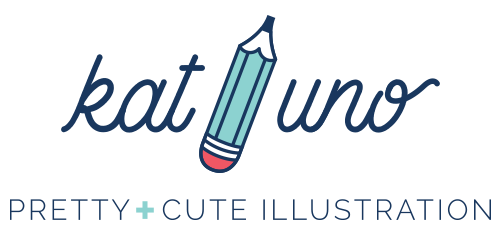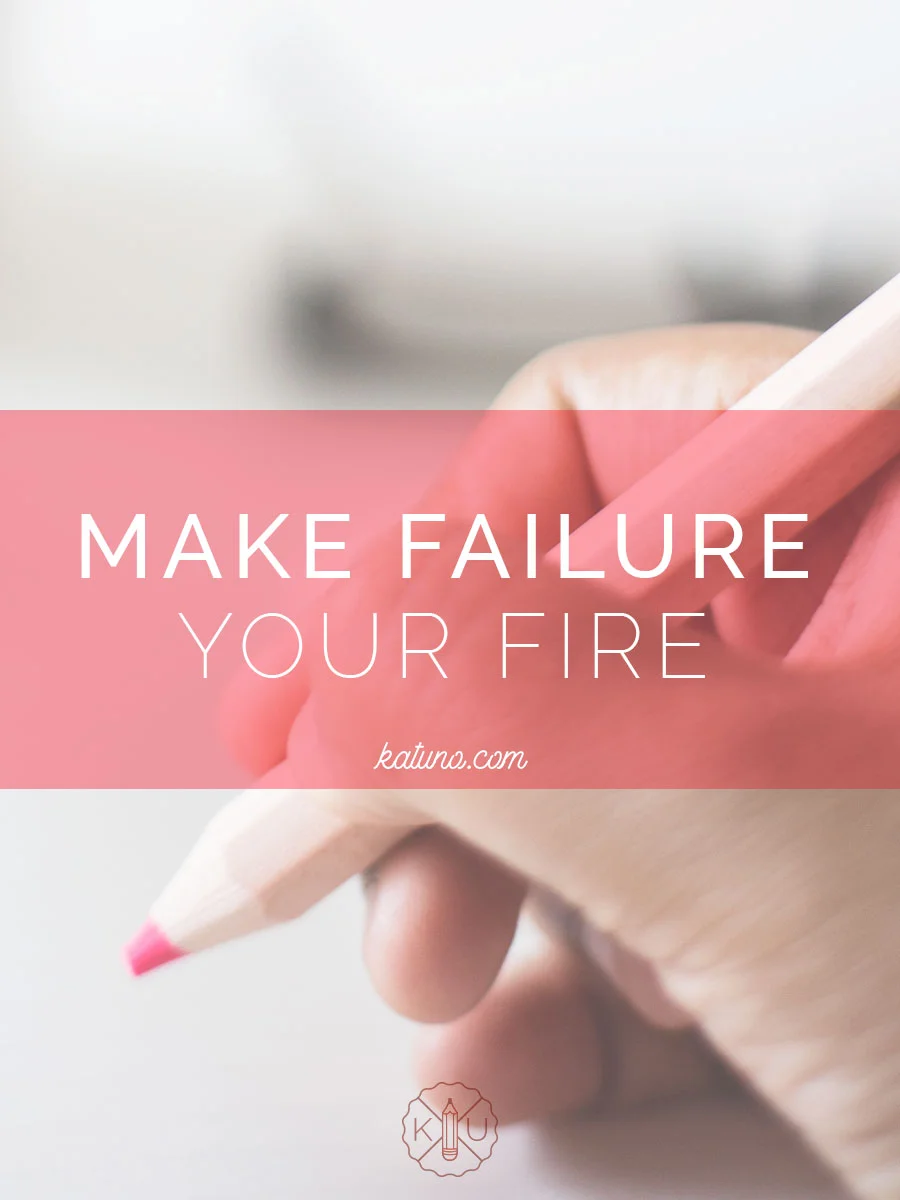Freelance Life Little History Lesson
I often felt afraid of going full time freelancing because my career would be completely reliant on clients/customers to make a living. This fear stemmed from a lack of confidence as opposed to life experience. I will be the first to admit, I initially failed at being a freelance illustrator years ago. I lasted a couple months before giving up, confidence crushed and resolved to find a full time job elsewhere.
Fast forward about ten years. I think that failure is never a bad thing unless you let it define you and your work. Failure shows that you are human, that you have flaws and that you can always improve yourself. My work a decade ago wasn't bad, but it wasn't great. I really needed the time to grow as an artist and also as a person. I needed to gain confidence while also developing a thicker skin.
“I think that failure is never a bad thing unless you let it define you and your work. Failure shows that you are human, that you have flaws and that you can always improve yourself. ”
Fears usually manifest themselves in doubt; questions that makes your confidence in take a plunge. When this happens, take time to think about those doubts and find realistic solutions to them. For example:
Doubt #1- What if I cannot find clients? What if no one wants to hire me? Solution: Don't wait around to be discovered! Do research. Look at your work. What is your style? Then think about what you want to do with your work? Do you want to illustrate for books and magazines? Go shopping at newstands and make notes of the art directors of magazines you like. Check out publisher's websites online for submission guidelines. Make your first targets companies that use work that is similar to yours or that you think your style might fit well with.
Doubt #2- What if I can't make ends meet? I have bills and financial responsibilities! Solution: Sit down and create a budget. Seriously, for a month itemize every single thing you spend money on. Create a category for regular bills that occur monthly (childcare fees, utilities etc), needs (groceries, gas) and other (clothing, entertainment etc). Add up the items you need to pay each month (you can average the needs category for a rough monthly estimate) and then see what you can possibly cut from the "other" category. Look at the numbers. If you cannot afford to give up your salary without risking your family's financial stability, see if you can possibly freelance on the side. I actually had a full time job (and handling two small children) while freelancing on the side. Although it didn't add up to much extra cash, it did help me get into the groove of working with clients and doing the admin work (invoicing and bookkeeping) while still earning a full time income to support the family.
Doubt #3- I don't have enough good work in my porfolio. I don't even know if the work I do have is good! Solution: Find a consultant in the area you are interested in (illustration or art licensing etc) and hire them to review your portfolio. There are people (established professionals in their field) online that do offer consultation services for a fee. It may be an investment but consulting someone who has a trained eye can help you determine what you need to work on in your portfolio and whether or not you are ready to pursue a creative career.
Doubt #4- What if I get an assignment from a client and I can't deliver or what I do produce is rejected? Solution: Go into the job with confidence! Most of the time a client will not outright reject what you produce. I want to stress most of the time. Honestly, clients, especially art directors and art buyers, choose you for a reason. They like your work and expect work at the same level as what you show in your portfolio. So in essence, you technically should be able to produce what your clients request. It's very rare that they ask you to create something in a style you have never worked in or shown in your portfolio. At that point, you can always decline the job offer (no shame in that). Also, you never know if you can do something unless you try! I'll admit I often have doubts that I won't be able to please my clients but I can happily say that I'm fairly sure that most, if not all of my clients are happy with the work I deliver. I think we as artists, we invest so much into our work and we are often much more critical of ourselves than anyone else is.
I honestly think that anyone can do what they love and make a living as long as they work hard and also take the time to prepare. Although it's not a walk in the park, it is so much easier to start a business when you have:
A Plan- what are your first steps? What can you do immediately? Will you be able to make enough to cover bills (If not should you consider working part-time)? What do you have to do to get your business legally started? What do you need to actually do work? I highly suggest creating a business plan. It doesn't have to be something fancy or in depth, but it should outline a basic course of actions of how you are going to operate your business, make money and what you need to start your business.
What to Include in Your Business Plan by The Everygirl - This post is a quick and useful rundown of what a business plan should entail. It has a list of parts that make up a business plan and tips on how to flesh out those parts.
How to Write a Business Plan for Creatives by Chayla Charlise - This is also a great blog post that outlines the sections every business plan should have. Each section has a list of questions which help make it easy to fill out each section.
How to Write a Creative Action Plan You'll Actually Follow by Regina - I've personally found this post to be really helpful (plus she offers worksheets!). I really enjoy having worksheets to fill out because I find that I retain info much better when I write things down (as opposed to just reading a post or watching a video). I really like how she taps into different areas most other business plan sites don't (like building your audience, streamlining processes which makes you much more efficient, and improving your online presence to name a few). This article is jam-packed with helpful actionable information!
Confidence- You need to be confident in yourself that you can make a go at it. If you don't believe in yourself to succeed you never will. We are often our harshest critics but truthfully we should also be our own biggest cheerleaders! I suggest you find a great supportive and active Facebook group to interact with or find like minded creatives to regularly bounce ideas and work off of.
Time- Time is the one thing that we cannot gain back. We can invest money into our business and earn it back but time is a one-way investment. Sometimes making the time for your business will often mean sacrificing time for yourself or with your family.
A Positive and Professional Attitude- I truly believe that people want to work with people that are 1) nice, 2) easy to work with and 3) punctual. I find that the easiest part of being a freelancer is being nice and professional. It really doesn't take much. Answer all your emails promptly and politely. I always end my emails with a "thank you!" or a "have a great day!". I make an effort to follow up with clients within a couple days if I haven't received a reply or if I need anything from them. I also aim to deliver projects at least a few days early unless I'm totally swamped. To me, sending work late is unacceptable. Clients give us deadlines ahead of time. Even if they are short, if I as a freelancer agree to the deadline it's my responsibility to meet it, otherwise I should have declined if it was too tight for my schedule. A client will be much more understanding (even appreciative) if you let them know upfront that you are unable to take a job because you can't complete it within the timeframe as opposed to getting them the product late. Time is money for both you and them.
Do you have any fears that hold you back from pursuing your dreams or starting a business? Fears are real and they are not insignificant. Although it's great to be brave we can also make calculated and responsible decisions to get to where we want to be!
RELATED POST:
To Invest or Not to Invest? How to Determine if Something is Worth Investing in For Your Business - When I first started my business I had to really wrap my head around the fact that now I could deduct business expenses from my taxes. I'm sure whenever anyone makes the leap to creating a business for themselves they are filled with lots of emotions: excitement, fear, determination, anxiety, ambition, accomplishment etc. It's often easy to make judgments (especially purchases for your business) out of excitement with little thought behind them. Read more...


